Presidential Column
The Memories of Memory Researchers
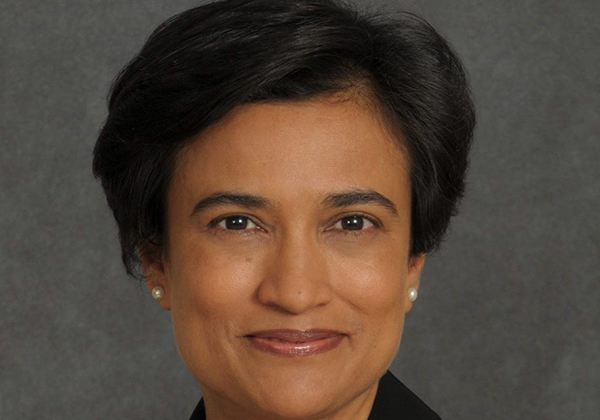
In this Presidential Column, it is my pleasure to bring to you my Q&A with four internationally renowned psychological scientists who will speak at the Presidential Symposium I will host during the 30th APS Annual Convention on May 25, 2018, in San Francisco. These eminent scientists — APS Past President and William James Fellow Henry L. (Roddy) Roediger, III, APS Board Member Dorthe Berntsen, APS Fellow Qi Wang, and psychological scientist Charan Ranganath — have fundamentally shaped our understanding of human memory through a wide range of perspectives, techniques, and groundbreaking discoveries. I was struck by the varied paths they have taken in their lives and education, the challenges they have faced, and the ingenuity they have brought, time and again, to scaling new heights. I was also inspired by their singular love for science, their dedication to our discipline, and their overall leadership. I hope that students and early investigators reading these interviews will enjoy the infectious optimism and strength evident in their answers and the priceless advice the speakers have offered based on their vast experience. –APS President Suparna Rajaram
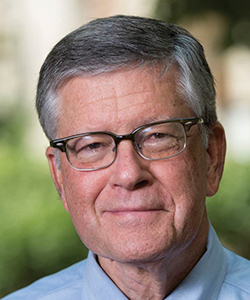 Henry L. Roediger, III
Henry L. Roediger, III
Washington University in St. Louis
What piqued your interest in the general area of your research?
Some experiences from early in my life led me to wonder how memory works. My mother died when I was 5. I discovered I could keep my favorite memories of her alive if I set aside time to review them every day or eventually every week. I did that for a long time, and I still can revive a set of detailed memories about her now, 65 years later. How accurate they are is a guess, but I believe the core events are accurate.
Can you share with us a little about your educational path, and whether/how it led you to pursue research in psychological science?
When I was 13 and living in Danville, Virginia, our family was sent a catalog for Riverside Military Academy. I read it, thought about it, and asked my father and stepmother if I could go. They eventually said yes, but warned me it would be hard. I didn’t listen. So off I went by train in August, 1961 — and I quickly realized after the first week that I had made a tragic mistake. I was not prepared for the rigor and discipline, nor for some of my fellow cadets. However, after 4 years, I had learned how to get along with all sorts of people from diverse backgrounds. And I learned a lot about leadership and how to deal with people.
From Riverside, I went to Washington & Lee University and had a great education there, taking courses all across the curriculum. The Psychology Department was small in those days, but Dave Elmes arrived after getting his doctorate at the University of Virginia. I began doing research with him, and eventually I had three publications from my undergraduate period, thanks to his mentorship.
I was admitted to the graduate program at Yale in social psychology, but after a year I migrated to the cognitive program and worked primarily with Bob Crowder. Endel Tulving was hired the next year, 1970, and he had a great influence on me, too, and we remain close to this day.
Did you take any detours along the journey to where you are today, and if so, how would you describe the significance of these markers?
My first job after Yale was at Purdue University, where I was asked to inaugurate a course in cognitive psychology — then a brand new field. I told Endel about this development, and when he returned to the University of Toronto as department chair, he asked me to come there for a year and teach the course. It did not exist there. I took a 2-year leave of absence from Purdue and taught the course, one section during the day and another one for three hours at night one evening a week. So this journey was a kind of a detour, but one that doubtless changed the trajectory of my career for the better. In the mid 1970s, the University of Toronto was the pre-eminent place to study human learning and memory. Besides Tulving, I got to know Gus Craik, Ben Murdock, Bob Lockhart, Norm Slamecka, Morris Moscovitch, Paul Kolers and others. In addition, Dan Schacter, Eric Eich, Janet Metcalfe, Gary Dell and many more, were then graduate students there. It was an exciting time for me, and for several years I would return to teach summer school there and I spent another sabbatical in Toronto in 1981–1982.
What have been the most exciting parts of your scientific career?
Training graduate students and postdoctoral fellows is one of the most fun parts of academia. Watching them succeed is a joy, too. Another exciting part is travel, getting to go around the world to attend conferences. And teaching eager students, graduate and undergraduate. I just finished teaching one of the most satisfying courses of my life on collective memory.
Did you face any obstacles in pursuing your scientific projects?
Sure. Every scientist has confronted obstacles: papers rejected, grant proposals turned down, jobs you want but don’t get, balky colleagues, and so on. But nearly every day in academia is easier than any day during my 4 years of military school. And I watch people outside academia, and they can have it rougher than faculty do. A company in San Diego that funded my recent research into people with superior memory abilities closed recently with no notice. The owner pulled the plug, so 265 people lost their very good jobs and their benefits, just before the holiday season. Being a tenured faculty member in a university or college protects us from this fate.
How have you balanced research demands with teaching and administrative responsibilities?
I was chair of my department at Washington University for 8 years, and then Dean of Academic Planning in Arts & Sciences for 8 more. I called the second position the Dean of Odd Jobs, because I did whatever kinds of things the dean asked me to do — lead a search committee for a new department chair, run a committee attempting to solve some issue, close a failing program as diplomatically as possible, and so on. My main accomplishment was helping to re-establish Sociology at our university.
If you examine my vita during those 16 years of administration, I think you would find not much difference in productivity from when I was not serving in an administrative role. Being journal editor for two journals also took its toll on my research, because it was hard to find time to write in those days (in the 1980s and 1990s), but I learned a lot from those editing jobs and they made me a better psychologist.
What/who have been major influences in your academic career?
First and foremost, Endel Tulving, who has been a mentor my entire academic life. I often asked for advice, and he was happy to provide it. Sometimes I would do what he suggested and other times not, but he was happy with that arrangement in letting me chart my own course. Dave Elmes and Bob Crowder were very influential early in my career, and I have also had great colleagues from whom I have learned much. I started listing them for this interview, but there are too many from the various phases of my career — and I’d be sure to miss someone.
What advice do you have for handling rejections from journals?
Persevere, if you believe in the paper. Take the reviews seriously, revise and try another journal. Don’t do it in a week, because you need to reflect on the reviews. But don’t wait too long, either, and lose your enthusiasm. These days there are many journal homes for most any kind of paper and it will likely be accepted somewhere (especially if you are willing to pay a thousand dollars). But sometimes the reviewers can convince you that no, your paper is not ready for prime time yet and you need to think more, write more clearly and add more research before trying again.
What advice, in general, would you give budding scientists around the world?
I have lots of advice since I teach a course I called “The Psychology of Academia” about how academia works and how to succeed in it. One bit of advice: When you have a set of data that you have analyzed and understood, sit down and write up the paper soon. In general, it is too easy to start projects and too hard to bring them to publication. I am going on sabbatical — another great reason to be an academic — and I hope to follow my own advice for 6 months.
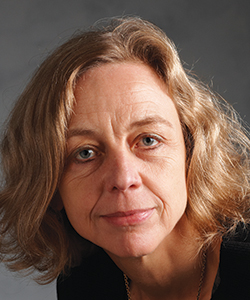
Photo credit: Poul Ib
Dorthe Bernsten
Aarhus University, Denmark
Can you share with us a little about your educational path, and whether/how it led you to pursue research in psychological science?
I had a long-standing interest in literature, notably poetic metaphors and how they were created. Yet my mentor encouraged me to develop my interests into something that was more “clearly psychological.” Otherwise I might not qualify for a PhD fellowship in psychology. I decided that autobiographical memory fulfilled the criterion of being clearly psychological and it still had some connection with literature, I felt. Then, I stumbled over a phenomenon that caught my interest, maybe because it often is featured in literature. And that phenomenon was involuntary autobiographical memories, which are memories that come to mind spontaneously with no preceding attempts of retrieval — think of Marcel Proust’s famous Petite Madeleine memory. I have studied this phenomenon from many different angles ever since then.
Did you take any detours along the journey to where you are today, and if so, how would you describe the significance of these markers?
The biggest detour was taking 8 years to decide what I wanted to study. In Denmark you have to choose a field before entering university. It took me 8 years to eventually decide psychology was my field. During the 8 years, I studied Nordic literature for one year, I published a novel, and I had random jobs. Those years taught me many important lessons, the most important one being that many other professions are a lot harder than being a university professor, even though we work long hours. My detours did not completely stop, however. I published four other novels when I was a PhD student and an assistant professor. Now I am finally going straight.
What have been the most exciting parts of your scientific career?
My experience as leader of the Center on Autobiographical Memory Research (CON AMORE) has been very positive and exciting. The center is funded for 10 years with a generous grant from the Danish National Research Foundation. My initial motivation was to achieve funding for research projects, not so much to become a center leader. However, I have also enjoyed the leadership part.
Did you face any obstacles in pursuing your scientific projects?
I am at a psychology department where most experimental facilities have to be covered by external funding. For example, the department itself had no computer labs, no subject pool. We are building and supporting this important research infrastructure on the basis of our external research funds, which is far from ideal.
What/who have been major influences in your academic career?
I am grateful to a lot of people who accepted as well as challenged my ideas and helped me develop them in ways I could never have done without them. Of course there are names that more easily spring to mind than others. However, many people have been a source of inspiration; too many to mention.
What advice, in general, would you give budding scientists around the world?
In the long run, what matters is scientific progress, and that you have contributed to making such progress. Anything else, such as awards and personal recognition is secondary.
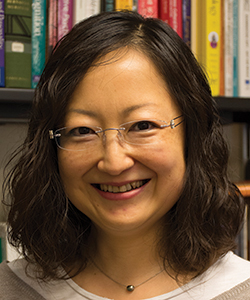 Qi Wang
Qi Wang
Cornell University
What piqued your interest in the general area of your research?
Here is a description of how I came to study autobiographical memory and culture, from my book The Autobiographical Self in Time and Culture (2013):
“About fifteen years ago, in mid 1990s, when I went to graduate school in the Psychology Department at Harvard, I had no idea of what autobiographical memory was. Although I had attended the best university in China and had gained a Bachelor’s degree in psychology, the term meant second to nothing to me. At that time, the study of autobiographical memory in Western psychology had grown into a dynamic, interdisciplinary field with exciting discoveries, theoretical debates, controversial issues, and intriguing phenomena. It had drawn researchers from diverse disciplines with such varied interests in human memory in natural contexts, in life histories and narrative self-making, and in the practical implications of memory in clinical, legal, and everyday settings. Autobiographical memory was not a subject of research in China then, however. Neither was autobiography an eminent genre in Chinese literature. I was amazed by the large sections of autobiographies and memoires in the Cambridge bookstores, a scene foreign and somewhat bizarre to me. What is the driving force behind the cultural difference in the popularity of autobiographical memory in research and autobiography in pop culture more generally? This question has motivated my research ever since.”
Can you share with us a little about your educational path, and whether/how it led you to pursue research in psychological science?
Both my parents were engineers before their retirement. So my pursuit in psychology was informed by early exposure outside home. When I was 11, I was admitted into a boarding school that was one of the top-ranked middle-high schools in our province. The school was very far away from where we lived. So I stayed with my aunt’s family for about a year before a dorm-bed spot opened up (That was back in the early 1980s when China was still in economic devastation). My aunt was a psychology professor at a teacher’s college. It was through her that I first learned about psychology. I read many books in general and developmental psychology from my aunt’s collection.
Naturally, when I was later admitted to Peking University (or Beijing University), I chose to be a psychology major.
Did you take any detours along the journey to where you are today, and if so, how would you describe the significance of these markers?
Although I set my foot in psychology at a fairly young age (primarily due to my aunt’s influence), I took some major detours before arriving to where I am today.
At the time when I graduated from college, in 1989, China was undergoing historical transformations in every aspect of the society — economically, politically, and culturally. Many new career opportunities emerged that my generation who grew up in Communist China had never heard of. They attracted many young and adventurous people and I was one of them. I had worked in foreign-invested hotels (a brand new concept at the time), in public relations and sales (where my psychology training was somewhat useful), and I had worked for a major French company in Beijing, doing administrative work.
Six years post-graduate, I found myself missing psychology and wanted to get back to my “roots.” So I started applying to graduate programs in Europe and the United States, which eventually led me to Harvard. (A side story: My original plan was to study developmental psychology at University of Geneva, where Jean Piaget had taught. I was admitted into the program and in fact went there, but then found out that my French was inadequate for me to begin the graduate work right away).
The detours were well worth it: They made me realize what I wanted for my career and where my intellectual strengths were. They allowed me to stay focused during my graduate study and remain motivated. I formally enrolled in the psychology PhD program at Harvard in 1996 and received my degree in 2000. I then joined the faculty in Human Development at Cornell.
What have been the most exciting parts of your scientific career?
The pursuit itself is the most exciting part: coming up with interesting and original ideas, brain-storming with students and collaborators, persevering in the data-collection process, writing and thinking through writing. These are all exciting parts of the scientific endeavor.
Did you face any obstacles in pursuing your scientific projects?
Nothing unusual. Working with a small and transient community to recruit children and families, especially ethnic minority families, and trying to follow them longitudinally, has been perhaps the biggest challenge in our projects.
How have you balanced research demands with teaching and administrative responsibilities?
I took the role of department chair this past July. I have come to appreciate the complexity of the job. Most of the work is done behind the scene. However, it is truly rewarding to lead a dynamic department with brilliant colleagues and outstanding students, and to work closely with the faculty to implement critical changes to build on and extend the Department’s scholarly excellence and to maintain and improve its leadership in research, teaching, and outreach.
To balance research with my teaching and chair responsibilities, I set aside time (two mornings each week) for writing. I also try to do what the Chinese call 见缝插针 — meaning literally sticking in a pin wherever there’s room — to make use of every bit of time, with the goal of writing one paragraph a day.
I have an active lab of graduate and undergraduate students, with many ongoing projects at various stages. We hold a weekly lab meeting to discuss the projects and address any issues. We also use the time to talk about new ideas.
I make sure to remain accessible over emails to students in my lab and my class, and make myself available whenever an emergency meeting is required.
What/who have been major influences in your academic career?
So many! My aunt through whom I had the first exposure to psychology. My graduate school advisors Michelle Leichtman and Shep White who helped me set my career path. There are then many informal mentors with whom I have had the fortune to work or collaborate, including Steve Ceci, Michael Ross, Robyn Fivush, Martin Conway, David Pillemer, Carole Peterson, among others.
What’s been your guiding compass in your academic career?
Focus on the process, not the outcome. This makes the scientific pursuit more exciting and enjoyable, and makes obstacles and temporary failures (e.g., rejections from journals) less interruptive or upsetting. This compass also allows me to see what would be usually considered to be an outcome (e.g., tenure) as part of the process, and thus not to get stressed about it.
What advice do you have for handling rejections from journals?
There can be frustration, but never give up. If you truly believe in your work, revise and improve the paper based on reviewer feedback and submit it elsewhere.
Careful preparation is key: Submit a paper as if it were the final version that no further changes could be made. This is out of respect for the journals, the reviewers, and our profession.
What advice, in general, would you give budding scientists around the world?
Stay attuned to the field and be mindful of the everyday life, in the process of developing exciting ideas that are theory driven, evidence based, and of real-world relevance. Focus on and enjoy the process of your scientific pursuit.
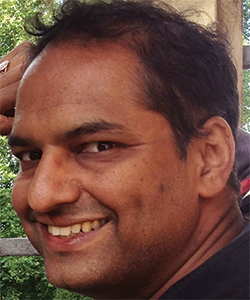 Charan Ranganath
Charan Ranganath
University of California, Davis
Did you take any detours along the journey to where you are today, and if so, how would you describe the significance of these markers?
Most of my educational path was a detour…or maybe my current path is a detour, depending on your perspective.
There was a lot of racial hate where I grew up. If you were brown and even seemed like you could be Arab, guys wanted to beat you up. If it seemed like you cared about school, guys wanted to beat you up. So, by becoming totally disinterested in school, I took one target off my back. I was especially bored by all my science classes. I still majored in engineering at Berkeley, because I saw it as a vehicle to a job.
I majored in engineering at Berkeley, but I realized that I had no interest in engineering. Psychology piqued my interest because, the more you learn about cognition, the more you discover that “normal” = irrational. I went on to grad school in Clinical Psychology at Northwestern. My advisor, Ian Gotlib, was recruited away to Stanford, and Ken Paller had just started his lab, so I pitched a study to Ken and ended up squatting in his lab. At that time, I was doing a lot neuropsychological testing, and I was frustrated that most clinical tests of memory were designed before the 1960s. Clinical practice was decades behind the state of the art in neuroscience research, where brain imaging was really taking off. I was in the right place at the right time, and got funding to do postdoctoral research on fMRI and memory with Mark D’Esposito and Marcia Johnson.
My weird educational path had a huge effect on my thinking. The faculty in my clinical program were researchers first, and they always encouraged us to think critically about the ideas that guide clinical practice. Coming into cognitive neuroscience as a total outsider, I had that same critical attitude, and it put me in a position to challenge some of the dogmas in our field. I would have been too scared to do anything useful if I had been trained properly.
What have been the most exciting parts of your scientific career?
It’s amazing to look inside people’s brains. When I started doing fMRI, every subject’s dataset was like a Christmas present that I couldn’t wait to open. On the personal side, I love being in a field where I’m usually not the smartest person in the room. And it’s even more exciting that I get to learn from, and work with, ridiculously talented students and postdocs.
At the larger level, psychology is exciting because it’s a living science. Roddy Roediger wrote a great paper arguing that, when you really look at it, there are no fundamental laws in the science of memory. The findings are real and replicable, but the phenomena don’t follow simple laws. To hell with laws! I love the anarchy of our science.
The best thing, though, is that I don’t have a boss. I’d absolutely hate to use my skills to enrich some shareholders or to get more people to read Trump’s tweets.
Did you face any obstacles in pursuing your scientific projects?
Definitely. As a student and postdoc, I was extraordinarily lucky with pubs and grants. When I started my own lab, things went downhill, and I faced repeated rejections. I had a tough time managing my own internal pressure to “succeed,” while figuring out how to be a good parent.
How have you balanced research demands with teaching and administrative responsibilities?
I’m not sure “balanced” is the best word…I’d say “juggled.” It’s always difficult to switch between urgent deadlines and long-term projects, or between boring tasks that must be done, and interesting things that I want to do.
Teaching is less difficult, because I fortunately get to teach about what I’m interested in. It makes you go back to the literature and think about the big picture. Looking back at the classes that I took when I was an undergraduate, I don’t remember the details, but I took away some important lessons that stuck. So I try to ask myself — what is really important in current research, and how is it relevant to my students?
What/who have been major influences in your academic career?
I’ve been very fortunate to have a series of great mentors: Barb Mellers, Art Shimamura, and Rich Ivry at Berkeley, Ken Paller at Northwestern, and my postdoctoral mentors, Mark D’Esposito and Marcia Johnson. Ken always encouraged me to try out ambitious and risky experiments, rather than going for the low-hanging fruit. Mark encouraged me to think like a neuroscientist, and to get under the hood and gain a deep understanding of fMRI methods. Marcia taught me that the process of writing is the process of thinking — we used to have 20-minute phone calls about a single sentence, and by the end of the call, I realized that I hadn’t fully developed the ideas I was trying to express.
Another big influence was Neal Cohen and Howard Eichenbaum’s book Memory, Amnesia, and the Hippocampal System. Both of them turned out to be great supporters of my work. Howard, in particular, was an informal mentor for me and so many others. Howard was like the David Bowie of neuroscience — he constantly pushed the boundaries and reinvented himself, but he always maintained his unique vision. To his last day, Howard was doing the best science of his career, and possibly the best in the field. I strive to follow his example.
What’s been your guiding compass in your academic career?
“Let the data speak to you.” It’s easy to get so stuck in your thinking that you can’t see the data that you’re staring at, and it’s natural to be scared to say that your work is inconsistent with what the rest of the world thinks. In reality, if we knew how our experiments would turn out, we wouldn’t need to do them. Some of my best studies were ones where the results did not turn out as planned — they turned out to be much more interesting.
Having said that, I don’t think we should just sit around and describe data. You could train a chimp to do fMRI and paste the SPM output into a results section. We need scientists to come up with ideas and take a stand about how the results stack up against those ideas. Without theory and critical thinking, the methods and statistics are worthless.
What advice do you have for handling rejections from journals?
[Given how often that has happened, you’d think I would have a prepared answer to this question.] If you’re not getting rejected, you’re probably not trying hard enough. If you say something that is interesting and important, about half of the world will say, “You’re obviously wrong!” The other half will say, “Of course, we already knew that!”
Another point: Marcia Johnson used to talk about “Ugly Reviewer B” — the one who didn’t read your paper carefully, and nonetheless thinks your work is incremental, your methods are flawed, and your experiment is riddled with confounds. When that rejection comes, you have two choices. You could ignore all that feedback and send it somewhere else, or, you could reinforce your paper, deal with the criticisms explicitly, and revise your paper so that the innovation and significance is crystal clear. Dealing with Ugly Reviewer B almost always makes your paper better.
What advice, in general, would you give budding scientists around the world?
Budding scientists are exposed to a bleak stew from news and social media about job prospects, the reliability of scientific findings, and whether we can really understand anything about the mind/brain. Some of that negativity is justified, but there’s a lot of good science being done, and there’s a lot of good that scientists are doing. If you persistently stick to rigorous work that addresses real questions, you will do well.
My other piece of advice is that science depends on creativity as well as rigor. In my other life, I write and play music, and there are huge parallels between music and science. Musicians write songs and play shows, scientists write papers and give talks. Some musicians and scientists become successful by following the latest trends. But there is always room for people who develop new ideas and push the boundaries. Neither profession is particularly lucrative for most people, but they are both rewarding if you are creative and don’t let anyone or anything hold you back.





APS regularly opens certain online articles for discussion on our website. Effective February 2021, you must be a logged-in APS member to post comments. By posting a comment, you agree to our Community Guidelines and the display of your profile information, including your name and affiliation. Any opinions, findings, conclusions, or recommendations present in article comments are those of the writers and do not necessarily reflect the views of APS or the article’s author. For more information, please see our Community Guidelines.
Please login with your APS account to comment.